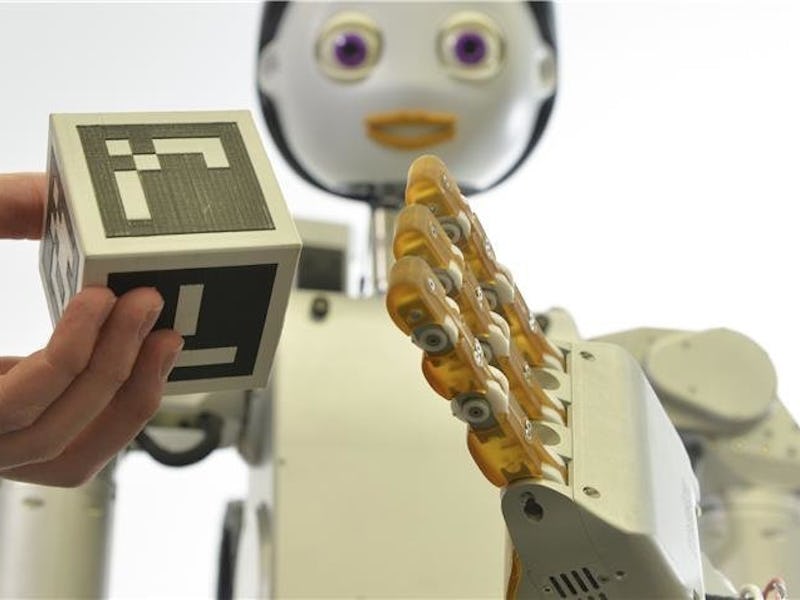What Kind of Domestic Robot Will OpenAI Bring to Our Homes?
Elon Musk's artificial intelligence nonprofit is pioneering the way.

The non-profit OpenAI, which is backed by Elon Musk, is planning to make the next big domestic robot. But don’t think Roomba 2.0. The group, which also boasts support from Peter Thiel, plans for its robot to be able to perform a variety of household tasks, making it more like the general purpose machines in I, Robot than a blindly roving vacuum cleaner.
If the OpenAI team succeeds in making one robot that can perform a range of general tasks, it would be a huge step forward in the largely stagnant world of automated chores. So far, researchers have mostly succeeded in creating robots that can do one or two tasks, often with human guidance. There’s a robot in Munich that can cook a Bavarian breakfast, one that can intelligently water the plants, and the drink-serving Brewski Bot. But all of these robots would be impossible to meld into do-it-all multi-bot: it would be too large, too expensive, and too complex.
That challenge is part of the appeal for OpenAI, which calls a household robot a “good testbed” for artificial intelligence challenges.
Robotics scientists are still trying. On Wednesday, the Cluster of Excellence Cognitive Interaction Technology, which is part of Bielefeld University, debuted a robot named Floka that could help out around the house as a social companion, assessing social situations and adapting its cartoonish face to fit the mood.
The largest potential drivers of innovation in the robotics space, like Amazon and Alphabet, seem unlikely to make strides toward domestic robots in the near future — leaving the nonprofit OpenAI nonprofit a clear playing field. Though Google acquired a number of robotics companies in 2013, including the iconic Boston Dynamics, it recently consolidated many of them under Alphabet’s X division, telling roboticists that their skills could be repurposed for more revenue-creating projects. The team at Boston Dynamics, which just debuted a robot that can load a dishwasher and fetch beer, among other skills, has been put up for sale. Meanwhile, at Amazon, most robotic innovation is centered on making its fulfillment centers operate efficiently.
OpenAI hasn’t released more information about its plans for domestic robots, and it’s not clear whether they’ll be commercialized. But it’s safe to say that the team will pay close to attention to making the robot suitable for human interaction. Musk has made a number of comments about his fear of artificial intelligence getting out of hand, calling A.I. research “summoning the demon” and “potentially more dangerous than nukes.”